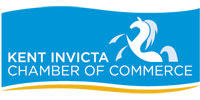Buying into a franchise allows you to start a business based on a tried and tested model. It can be a safer way to start up a business but you need to understand what you are agreeing to when you sign a franchise agreement. Laura Clarke, partner at WBW Solicitors, answers key questions about franchise agreements
What types of franchise agreements are there?
The "business format franchise" is most common. The franchisor (ie original business owner) grants licences to franchisees for a fee, which enables them to run their own business while using the franchisor's established brand. Franchisees buy into a tried and tested business model. The franchisor provides training and assistance, while maintaining quality control to protect standards. In addition to the upfront fee, the franchisee must make regular payments to the franchisor.
Are there any other types of franchise arrangement?
The word "franchise" is sometimes attached to other arrangements that are not true franchises, such as distributorships and dealerships, agency arrangements, licences, etc. A "tied house" arrangement between a brewery and a pub is often referred to as a 'first generation franchise'.
Do I need to sign a franchise agreement?
Yes, whatever the arrangement, both parties should expect to see their rights and obligations clearly set out within an agreement. You need certainty about the terms, fees, identity of and legal relationship between the parties, responsibilities, provision for dispute resolution and agreement termination.
If I want to join a franchise network, what type of agreement will I need to sign?
A comprehensive one that explains your responsibilities, chiefly to operate the business in accordance with the franchisor's instructions, comply with legislation, keep sufficient stock, pay suppliers promptly and to provide the franchisor with important information it requests. You are liable for your own costs, such as business rates, rent, taxes and wages, and for your own legal and accountancy fees.
How long does a franchise agreement last?
The agreement would typically be for five years, with options to renew on at least two occasions, so that if you're running the franchise satisfactorily, the term could be for 15 years or longer.
What research should I carrying out before signing a franchise agreement?
You should carry out as much research as possible, as you would for any business. The franchisor should also put you in touch with other network members, otherwise – consider it a potential warning sign.
Do I need legal advice before signing a franchise agreement?
Yes. The franchise agreement will be drafted to the franchisor's favour, so you must understand what you're signing. If you also take into account upfront fees, regular fees and possible additional fees if you withdraw early, signing a franchise agreement without proper legal advice could prove a very expensive mistake. Finding a solicitor with relevant franchise contract experience is essential.
How much in legal fees could I expect to pay for such a service?
Depends on the length of the agreement and follow-up work required, but you should budget at least £2,500.
What terms within a franchise agreement might I find to be unfair?
You may be required to buy all your equipment and stationery from the franchisor, instead of being able to shop around. The franchisor's fees may be excessive or you may be required to spend more on advertising than if you were running another business. It's also common for there to be restrictions on running a similar business to the franchise after the term has ended. The agreement will favour the franchisor, but it should not be unfair.
